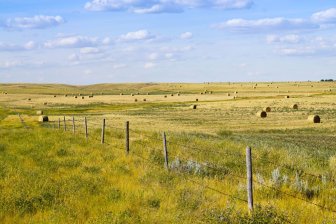The AstraZeneca COVID-19 vaccine has hit a minor stumbling block after a small clinical trial raised doubts about its efficacy against the South African variant of the coronavirus.
On Sunday, South Africa halted its planned rollout following preliminary data that suggested that the AstraZeneca vaccine offers only “minimal protection against mild or moderate disease” from the B.1.351 variant, now the dominant form of the coronavirus in the country.
The AstraZeneca study involved 2,000 healthy volunteers with an average age of 31 and showed just 22 per cent were protected against mild to moderate cases of the disease.
The research has not yet been peer-reviewed and did not provide data on older people most likely to die or need hospitalization. There was no data on whether the vaccine would prevent severe illness, but researchers said that was still possible.
Levon Abrahamyan, a virologist at the University of Montreal, said while it is possible that the new variant first identified in South Africa is less sensitive to the AstraZeneca vaccine, a more rigorous study involving a larger number of participants and a wide range of age groups was needed.
“It’s too premature … too early to make any strong and broad conclusions, because the clinical trial is based on a very small group of participants … who are too young,” he told Global News.
Dr. Isaac Bogoch, an infectious disease specialist at the University of Toronto, also said there was not enough data to support the vaccine’s use for preventing mild or moderate infection.
[ Sign up for our Health IQ newsletter for the latest coronavirus updates ]
“That’s a problem,” he said.
AstraZeneca’s vaccine was authorized for emergency use in the United Kingdom at the end of December, and in Argentina, the Dominican Republic, El Salvador, Mexico and Morocco early this year before being approved for all adults by the European Medicines Agency (EMA) at the end of January.
In an emailed response to Global News, Health Canada declined to comment on whether the South African trial would affect its decision to approve the AstraZeneca vaccine for use in the country. The agency said it doesn’t comment on applications that are under review.
In Canada, the AstraZeneca-Oxford vaccine, which is 70 per cent effective, is still undergoing a rolling review process. Health Canada has so far approved two vaccines by Pfizer-BioNTech and Moderna.
On Monday, the World Health Organization (WHO) said it was reviewing the data from South African trials, as well as those being conducted in the U.K. and Brazil about the dominant variant of concern in those countries.
“There is some …. indication of reduction in the efficacy, some more, some less, depending on which variant, which population, and also of the neutralizing antibody responses,” Dr. Katherine O’Brien, WHO director of the department of immunization, vaccine and biologicals, said during a news conference.
In a statement, the U.N.-backed COVAX program said: “We must do everything possible to reduce the circulation of the virus, prevent infections and reduce the opportunities for the SARS-CoV-2 to evolve resulting in mutations that may reduce the efficacy of existing vaccines.”

Following South Africa’s suspension, a number of western governments allayed concerns and expressed their support for the AstraZeneca vaccine.
In Canada, several cases have been found of the B.1.351 variant, which was first discovered in South Africa.
Bogoch said COVID-19 vaccines “still work” against variants of concerns, but not as effectively.
“They don’t protect individuals as well, for example, if they were against a regular garden variety strain of COVID-19. So, we’ve got to be very careful about this.”

Developers of the Oxford-AstraZeneca vaccine expect to have a modified jab to cope with the South Africa coronavirus variant by autumn, the vaccine’s lead researcher said Sunday.
Based on the evidence so far, researchers believe the new variants first identified in the U.K., Brazil, South Africa are more transmissible.
On Sunday, Canada’s first case of the Brazilian COVID-19 variant was found in Toronto.
— with files from Reuters, The Associated Press
© 2021 Global News, a division of Corus Entertainment Inc.







